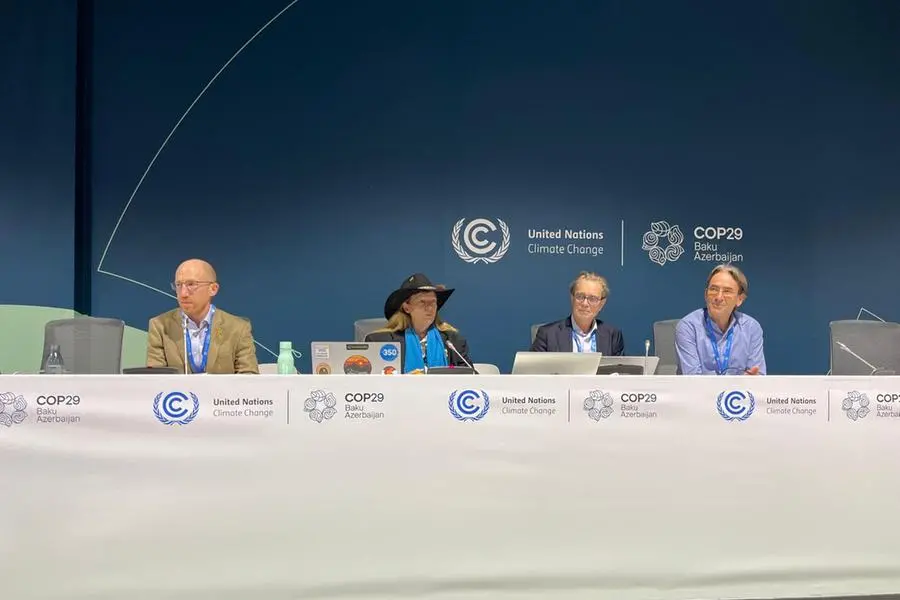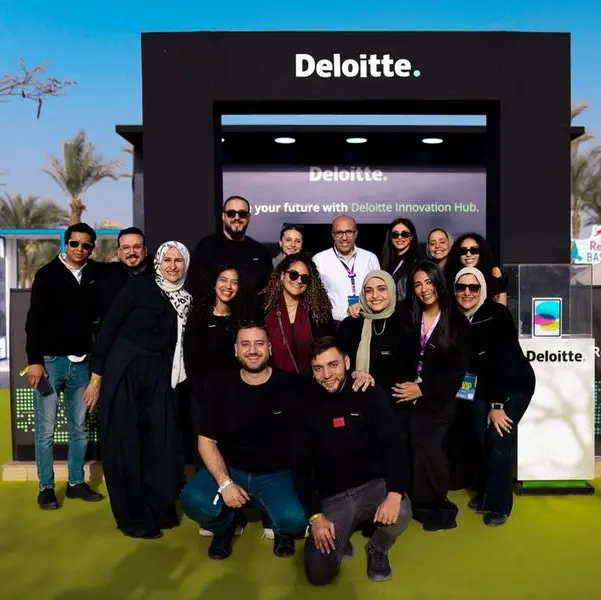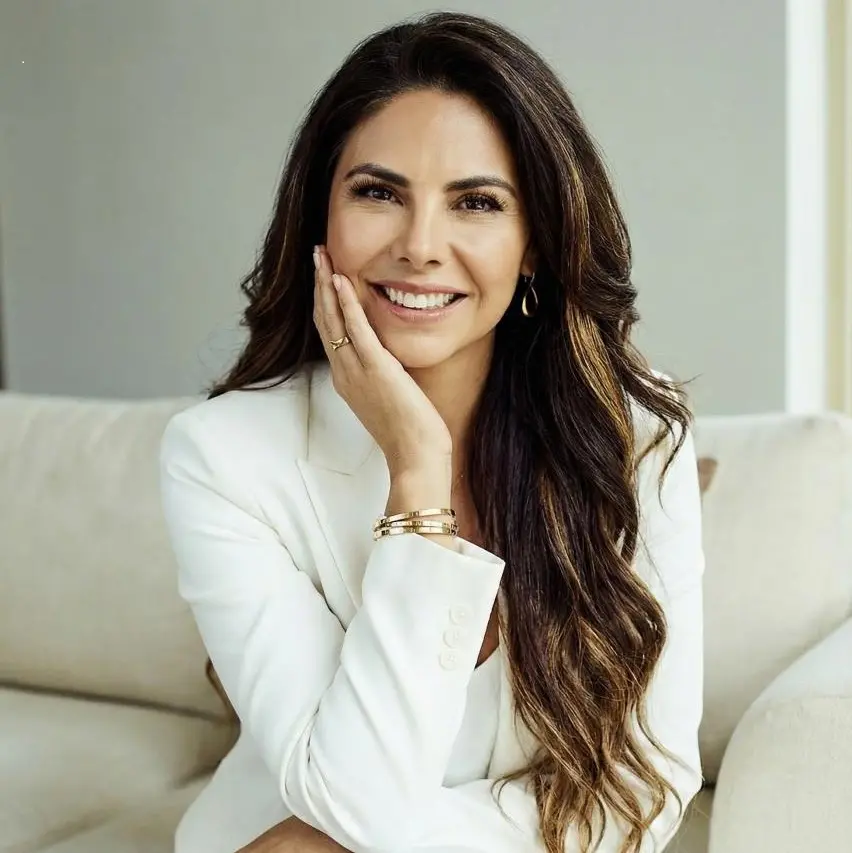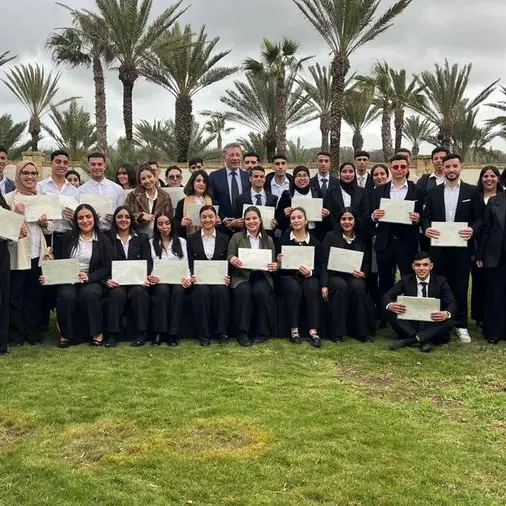PHOTO
Cairo, Egypt: In a significant representation at COP29, SEKEM, Heliopolis University, and the Egyptian Biodynamic Association (EBDA) are taking center stage to highlight the crucial role of organic and biodynamic agriculture in combating climate change and fostering a sustainable future. The delegation aims to engage stakeholders from agriculture, environmental sectors, and policy-making to share insights, address challenges, and develop collaborative solutions for the well-being of our planet.
A Joint Call for Climate Action
SEKEM, in collaboration with the EBDA, Heliopolis University, and the Carbon Footprint Center, launched a Joint Call titled "Agriculture is part of the Solution: A Joint Call for Organic and Climate Positive Agriculture." The Joint Call outlines a framework for agricultural carbon credit schemes that meet specific standards, allowing farmers to trade validated carbon credits on the international Voluntary Carbon Market (VCM). Proceeds from these credits will support the transition to climate-friendly practices, including renewable energy installations.
Additionally, the initiative aims to empower smallholder farmers by providing essential knowledge, funding, and support, guided by standards such as the Economy of Love (EoL): a certification standard developed by the EBDA and inspired by SEKEM that focuses on enhancing carbon sequestration through various sustainable practices. This collaborative effort seeks to transform agricultural practices into effective solutions for enhancing climate resilience and sustainability.
Key initiatives and events:
SEKEM, EBDA, and Heliopolis University are collaborating to host impactful sessions focused on sustainable development, including the following:
- Upscaling Regenerative Agriculture: SEKEM and the EBDA will discuss their 40,000 farmers initiative to support and train smallholder farmers to transition to regenerative agricultural practices, improving soil health, water conservation, and climate resilience.
- Empowering Climate Action: Egypt Financial Supervisory Authority (FRA) Strategic Approach to Voluntary Carbon Market: In partnership with FRA and Future Economy Forum (FEF), SEKEM will address challenges in the Voluntary Carbon Market (VCM), particularly in Africa, focusing on solutions that will enhance infrastructure, build awareness, and ensure the quality of carbon credits through robust monitoring and reporting mechanisms.
- Sustaining Our Future: Water Scarcity, Climate Change, and Regenerative Agriculture: SEKEM is collaborating with FRA, FEF, and Value Network Ventures Advisory Services (VNV) to explore sustainable strategies for water conservation and regenerative agriculture, addressing climate change and water scarcity.
Commenting on SEKEM’s participation at COP29, Helmy Abouleish, CEO of SEKEM Group, said: “I am honored to participate in COP29 alongside our delegation, where I am representing our farmers—the real climate heroes—and local communities, amplifying their voices across various sessions and initiatives. Since 1977, SEKEM has been fueled by a vision of sustainable development and community empowerment. We believe now is the moment to showcase our scalable model at SEKEM, inspiring organizations worldwide to join us in our mission to protect our planet. Our advocacy for biodynamic agriculture stands as a vital solution to urgent challenges such as climate change and food security. Through our Economy of Love Standard, we have discovered comprehensive answers to pressing questions—addressing climate change, restoring soil health, enhancing farmers' livelihoods, and ensuring the availability of nutritious food for our communities.”
He further stated: “I am also privileged to participate in our partner's event - 'Save the Soil' - titled 'Empowering Farmers: Progress and Future Pathways for Carbon Farming.' During this session, I will collaborate with our esteemed partners to share innovative strategies implemented within our network to enhance farmers' capabilities in carbon farming. We will address ongoing market access challenges and highlight the crucial role of agriculture in climate solutions while improving the livelihoods of smallholder farmers.”
Commenting on EBDA’s participation at COP29, Justus Harm, Co-Executive Director of EBDA, said: “Agriculture can and must become our focus in global actions for climate solutions. Through biodynamic and regenerative practices in our Economy of Love Standard (EoL), we’re empowering farmers and their communities to become climate stewards, transforming their fields into carbon sinks, increasing their resilience and livelihoods.”
SEKEM’s Ongoing Climate Commitment
The SEKEM Group delegation has actively contributed to COP27 and COP28 by promoting biodynamic agricultural practices. At COP27, SEKEM, Heliopolis University and the EBDA emphasized their commitment to regenerative agriculture as a key strategy to achieve climate goals. This engagement continued at COP28 with the establishment of a Blue Zone Pavilion in collaboration with the Future Economy Forum and Now Partners. During COP28, the delegation hosted daily "Solutions Dialogues" to discuss transformative agricultural solutions and advocate for supportive policies that ease carbon credit requirements.
About SEKEM
With the vision of promoting sustainable development in economy, ecology, society and culture, Dr. Ibrahim Abouleish founded the SEKEM Initiative in the Egyptian desert in 1977. The SEKEM group of companies produces, processes and markets organic and biodynamic food, textiles and herbal medicines in Egypt and on international markets. SEKEM is considered the Egyptian "organic pioneer" and was awarded the "Alternative Nobel Prize" in 2003. The SEKEM companies use parts of their profits to finance the activities of the SEKEM Development Foundation (SDF), which runs among others schools and a medical centre. In 2012, Heliopolis University for Sustainable Development was established as part of the SEKEM Initiative. The university was founded with the aim of pioneering the introduction of sustainable development concepts and principles to its students and the broader Egyptian community.
About the Egyptian Biodynamic Association (EBDA)
Founded 30 years ago, the Egyptian Biodynamic Association (EBDA) is an independent association that developed the "Economy of Love" standard, highly inspired by the SEKEM vision. The EBDA is focused on scaling biodynamic agriculture, promoting a holistic transformation of farming communities. Through the “Economy of Love” Standard, the EBDA is enabling farmers to transition from conventional to a more profitable biodynamic, regenerative farming model while supporting community development. To date, it has supported over 13,000 farmers and converted over 47,000 acres of land.




















